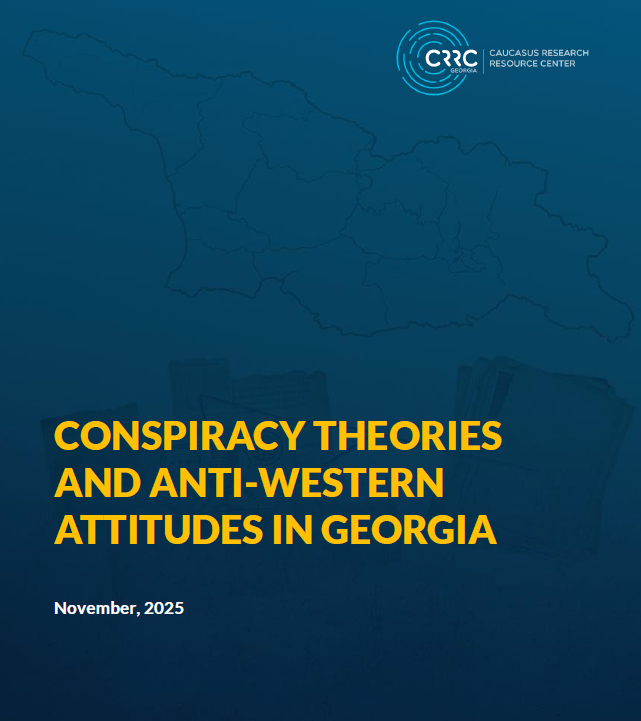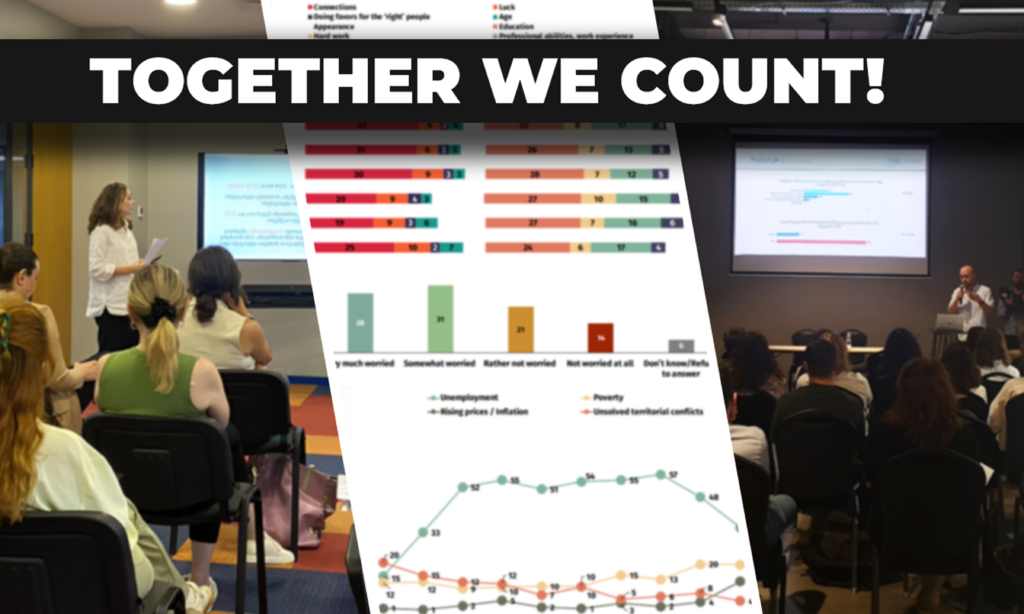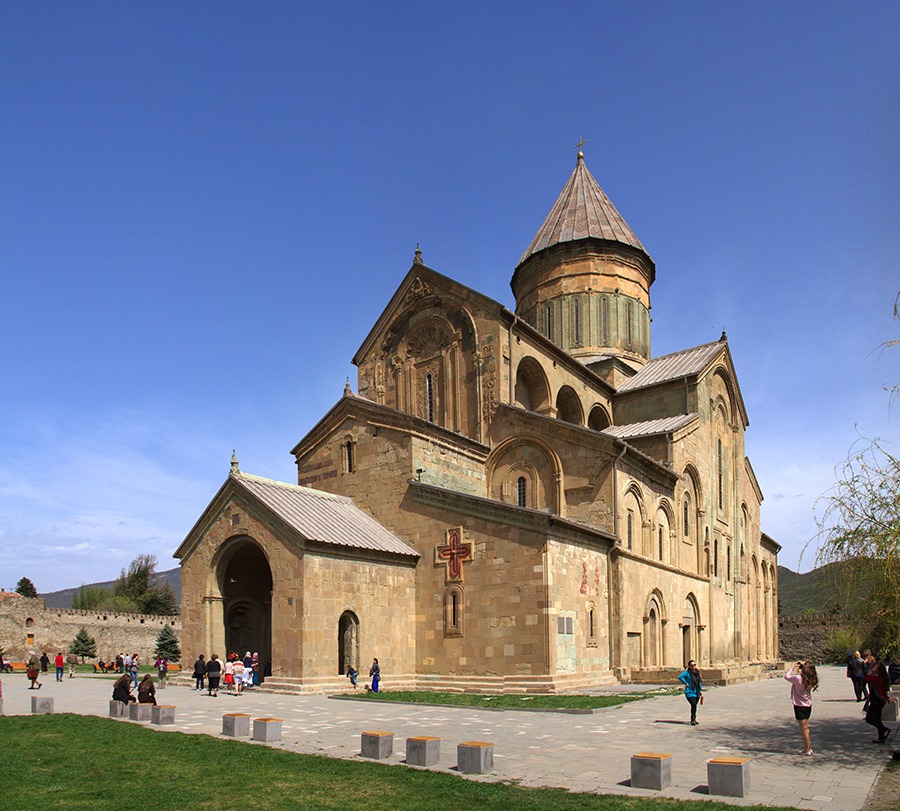A common sentiment when discussing foreign languages in Georgia is that young people know some English, older people know Russian, and those in between are mixed. Previous CRRC Georgia analysis from 2014 supported this claim, showing that knowledge of English was on the rise among young people. The 2019 survey on Knowledge and Attitudes towards the European Union in Georgia which CRRC Georgia carried out for Europe Foundation suggests that this trend is continuing in Georgia.
Since 2009 when the survey asked respondents to assess their knowledge of English, the share reporting they have no basic knowledge of English has declined from 73% to 58% in 2019, a 15 percentage point decline. When broken down by age, young people (18-35) have experienced the largest drop and older people (56+) the smallest in reporting no knowledge of English. Compared with 2009, young people are 22 percentage points less likely to report they have no basic knowledge of English. By comparison, people between the ages of 36 and 55 are 16 percentage points less likely to report no knowledge of English and people 56+ are 9 percentage points less likely to report no basic knowledge of English.
When it comes to Russian, the share of people who have no basic knowledge of Russian is much smaller – around 10% of adults in Georgia report no basic knowledge of Russian and this has been static over the years. However, the share of young people reporting either intermediate or advanced Russian knowledge has declined since 2009. While 70% of young people (18-35) reported intermediate or advanced knowledge of Russian in 2009, 54% did in 2019.
In Georgia, English language knowledge appears to be on the rise among young people. Although a lack of basic knowledge of Russian has remained low in Georgia over the last decade, people’s self-assessed fluency has declined, particularly among the young.
The data used in this blog post is available here.








